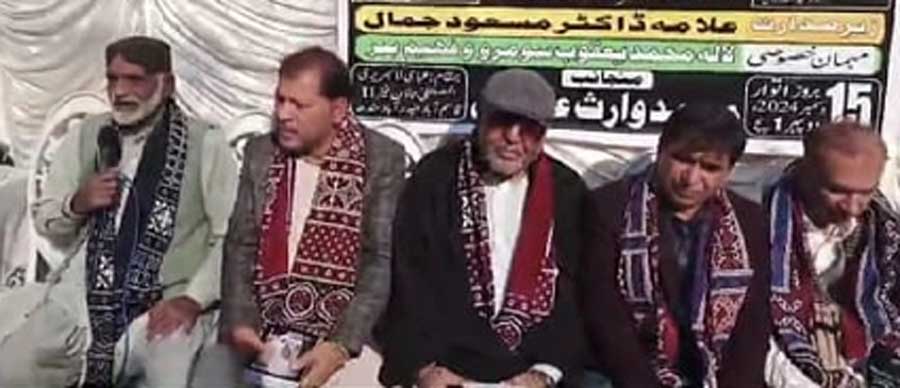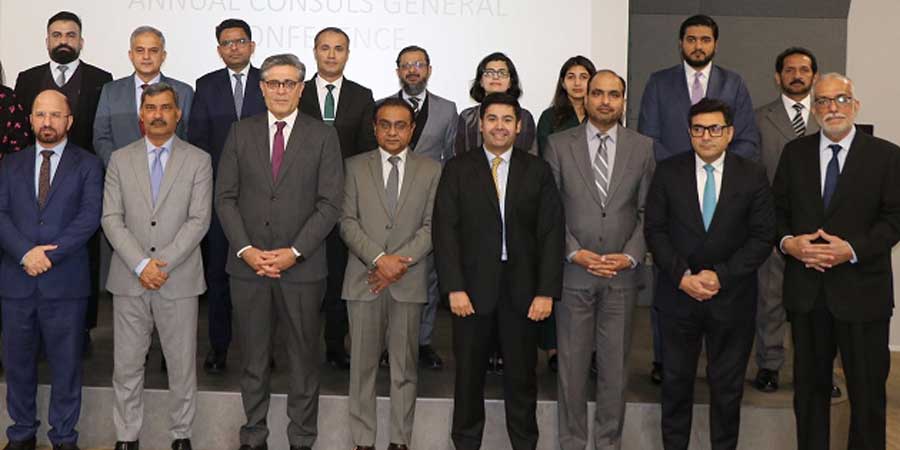TFD Report
HYDERABAD: Imam Hussain (AS) is a universal figure, and Sindh’s mourning traditions (Azadari) are as ancient as those worldwide, noted Allama Dr. Masood Jamal at Zawar Abdul Sattar Dars’ book launch at Abbasi Library, Hyderabad. In Islam, men are commanded to cover their bodies from the navel to the knees. However, there is no compulsion on how one must cover, as every nation and tribe has its own culture and clothing.
Similarly, while mourning the tragedy of Imam Hussain (AS) following the Sunnah (practice of the Holy Prophet SAAW) is obligatory, it cannot be enforced to adhere to a single prescribed method. Different nations have their own cultures, traditions, and ways of expression, and they mourn this grief in their unique manner. Therefore, religion and mourning practices should not be placed in conflict with each other.
Imam Hussain (AS) is the Imam of humanity, and this is why people of conscience, spirituality, and freedom lovers across the globe, irrespective of color, race, or religion, accept him wholeheartedly as their leader. They commemorate his memory in their own unique colors and styles, and this commemoration is called Azadari.
These thoughts were expressed by renowned Sunni scholar Allama Dr. Masood Jamal, American university professor Ashok Kumar, Kawish newspaper’s news editor Lala Muhammad Yaqoob Soomro, researcher and author Zawar Abdul Sattar Dars, writer Muhammad Waris Abbasi, Faheem Babur (anchorperson of Sindh TV Network), and Zaheer Mirza from Azadar Rabita Committee, among others. They addressed the audience at the book launch of Zawar Abdul Sattar Dars’s two new works: Karzar-e-Karbala and Hyderabad ki Azadari.
The speakers emphasized that the mourning traditions in Sindh are as ancient as those around the world, with Hyderabad being the center of these traditions. Although the city of Hyderabad was re-established in 1768 and named by Mian Ghulam Shah Kalhoro, it has been an ancient settlement with central significance throughout history.
In 8 Hijri, when the Holy Prophet (SAAW) sent a delegation of five companions to propagate Islam in Sindh, they chose Neroon Kot (the historical name for Hyderabad) as their center. The roots of this city, however, date back even earlier. In historical texts, it has been referred to by names like Beroon Kot, Batala, and Patiala. The tradition of mourning in Sindh spread from this very city, making it the heart of Azadari in the region.
The speakers lamented that while these accounts are an integral part of history, earlier scholars and writers did not pay sufficient attention to documenting this subject. As a result, a significant part of this historical and cultural legacy remained unwritten and was at risk of being forgotten.
In this context, Zawar Abdul Sattar Dars has undertaken the commendable effort of penning this vital chapter of history. Through his works, he has courageously preserved an important segment of Sindh’s Azadari tradition for future generations. This effort deserves immense praise and recognition.
The ceremony began with a recitation of the Holy Quran by Muhammad Hadi Chandio and a Manqabat (eulogy) recitation by Syed Zaki Shah Jahaniyan. At the start of the event, traditional Sindhi Ajraks were presented to the honorable guests, and the unveiling of the books was carried out.




